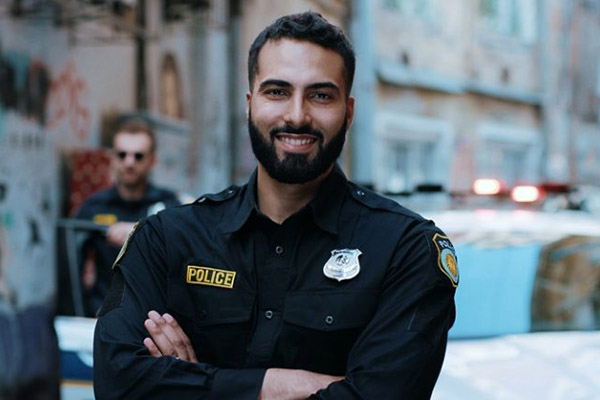By Dr. Nicole Cain | 06/30/2022

The American workforce is comprised of multiple generational cohorts, and their respective preferences affect the job market as well as the individual organizations that employ them.
Although not an exact science, many researchers agree that the Baby Boomer generation describes people born from 1946 through 1964; Generation X describes people born from 1965 through 1980; the millennial generation describes people born from 1981 through 1996: and post-millennials, or Generation Z, describes people born between 1997 and 2012.
The limited pool of police department applicants exists, in part, because millennials are not attracted to the law enforcement profession as previous generations had been. As police officers from the Baby Boomer and Generation X generations retire, millennials and post-millennials will be needed to fill their positions.
According to Richard Fry, of the Pew Research Center, a 2018 analysis of U.S. Census Bureau data revealed that the U.S. workforce was comprised of the following generational percentages: Baby Boomers (25%), Generation X (33%), millennials (35%), and post-millennials (5%). Millennials are currently the largest cohort (35%) in the work force.
As a start, law enforcement leaders must determine how millennials and post-millennials differ from past generations and adapt their recruiting and hiring efforts, leadership styles, policies, and systems accordingly.
The Multi-Phase Hiring Process
Most police hiring processes are designed to identify the most qualified candidates by eliminating the least qualified, like those who acted unethically or unlawfully, or are not physically or mentally able to perform the job. Still others are disqualified for drug use, a poor credit history, visible tattoos, and inappropriate social media activities.
Most police organizations have a multi-phase, or multi-hurdle, selection process that includes: a physical agility test, a written examination, meeting with an interview panel, receiving a conditional offer, a background investigation and a polygraph examination. Then there are a psychological fitness evaluation, a medical examination, and drug screening. Potential applicants can be eliminated during any phase of the process.
Portions of the hiring process for a career in law enforcement are extensive and intrusive, such as the background investigation, polygraph, psychological evaluation, and oral interview. The process requires candidates to disclose any past criminal acts or drug use, which is subsequently validated by the polygraph exam.
Portions of the hiring process for a career in law enforcement are extensive and intrusive, such as the background investigation, polygraph, psychological evaluation, and oral interview. The process requires candidates to disclose any past criminal acts or drug use, which is subsequently validated by the polygraph exam.
Although a criminal history or negative character issues are disqualifiers in many professions, the depth and intensity of the law enforcement hiring process creates more opportunities for disqualification.
Millennials and post-millennials may be more inclined to enter police work if they had a better understanding of the profession and its hiring process. Younger applicants are often uninformed about disqualifying behaviors and eligibility requirements and unaware of the complexity and intrusiveness of a police background investigation. Effective recruitment initiatives include establishing internships programs and promoting civilian ride-alongs, police camps, Explorer Programs, and other activities designed to build trust and confidence in the policing profession. These initiatives also expose potential recruits to the culture and expectations of police work.
Recruiters and social media can help clarify eligibility requirements, explain the hiring and application process, define disqualifying behaviors, and reinforce for high school and college students interested in a law enforcement career the importance of making good decisions.
Adapting to New Social Norms
At the same time, law enforcement departments must adapt to shifting cultural norms. Some agencies have revised their age, education, and residency requirements. Some have instituted easier fitness tests and less stringent drug use and credit history policies.
Law enforcement executives must also adopt a successful marketing strategy that includes a user friendly and informative web page. This page should be designed to reach and appeal to millennials and post-millennials. It should highlight the department’s achievements, technological advancements, policing philosophy, community partnerships, career opportunities, training opportunities, education incentives, and benefit packages.
Police leaders and their recruiters must develop innovative approaches to recruit younger generations because relying only on traditional methods such as career fairs and on-line job postings are ineffective for recruiting millennials. The Police Executive Research Forum identified as one innovative approach developing a “farm system to recruit applicants, similar to efforts by colleges and universities to identify star athletes in high schools or even middle schools.”
Law enforcement recruiters should go into the high schools, trade schools, junior colleges, and four-year colleges and develop relationships with teachers, criminal justice program directors, and counselors to identify potential police candidates.
Being present on local college campuses or at college events and fundraisers gives recruiters opportunities to meet students and foster trusting relationships. Young people need to recognize the role of police officers as allies and not adversaries, as the media commonly portrays them.
Law enforcement leaders should develop strategies to expand the recruitment process rather than limit it. They need to streamline the hiring process, thus encouraging potential candidates to seek a career in law enforcement. Police agencies must be committed to identifying and employing the best-qualified candidates available, not merely eliminating the least qualified.

Dr. Nicole Cain has 20+ years of law enforcement experience as patrol operations, uniform crime scene, COP, and criminal investigations. She is currently assigned to the Criminal Investigations Section’s Felony Intake Office and prepares all felony cases for the State Attorney’s Office. She recently earned her Ed.D. in Organizational Leadership.
